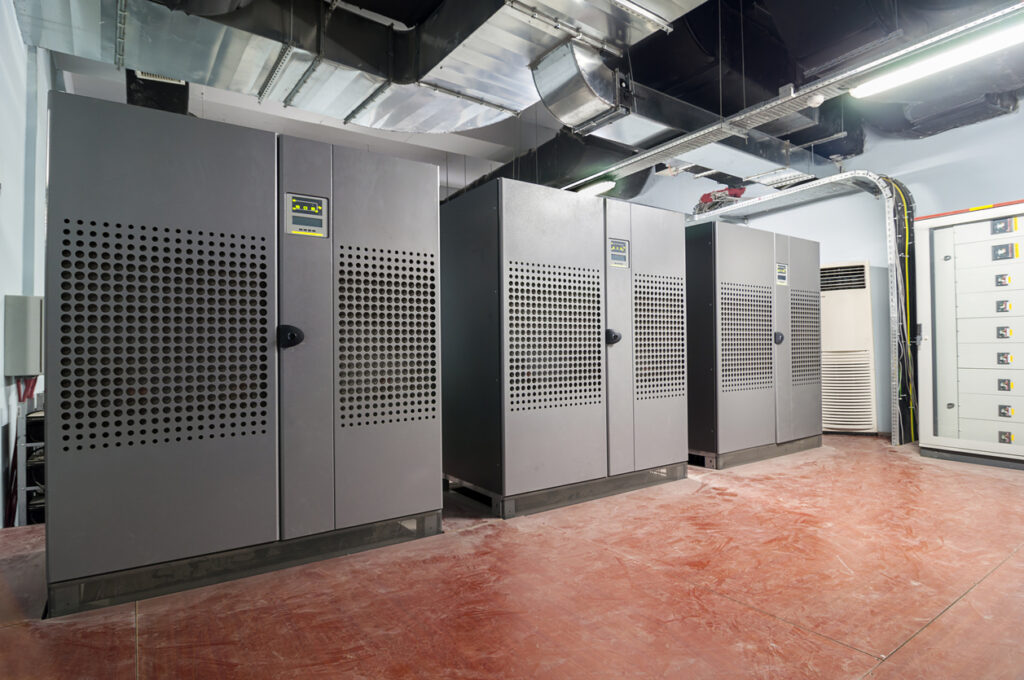EPS (Emergency Power Supply) and UPS (Uninterruptible Power Supply) are both systems designed to provide backup power in case of mains power failure, but they serve different purposes and have different characteristics.
- UPS (Uninterruptible Power Supply):
- A UPS is a device that provides backup power to connected electronic devices in case of mains power failure.
- UPS systems typically include a battery backup that automatically kicks in when the main power source fails.
- UPS systems are designed to provide immediate, short-term power to prevent data loss, equipment damage, or downtime in critical applications.
- UPS systems usually provide protection against power disturbances such as voltage spikes, sags, surges, and frequency fluctuations.
- UPS systems often have built-in surge protection and voltage regulation features to ensure stable and clean power delivery to connected devices.
- EPS (Emergency Power Supply):
- An EPS is a system designed to provide backup power to essential systems or equipment during emergencies, such as during a power outage or in disaster scenarios.
- EPS systems are often larger and more robust than UPS systems, intended to provide power for extended periods, ranging from several hours to days, depending on the system’s capacity and the load it supports.
- EPS systems are commonly used in critical infrastructure, such as hospitals, data centers, telecommunications facilities, and emergency response centers, where uninterrupted power is essential for safety and operation.
- EPS systems may include generators, battery banks, or alternative power sources to provide backup power during prolonged outages.
- EPS systems are typically designed to support a wider range of loads, from essential equipment to entire buildings or facilities.
In summary, while both EPS and UPS systems provide backup power during mains power failure, UPS systems are typically smaller-scale devices designed to provide immediate backup power and protect against power disturbances for connected electronic devices, while EPS systems are larger-scale systems intended to provide backup power for extended periods, often supporting critical infrastructure and essential systems during emergencies.


